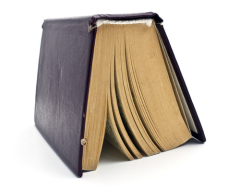
A detective book (or film) begins with a corpse. Or a missing person. Or a mysterious letter. A person reads the first page—and that's it: they're caught. They can't help but wonder who did it. They can put the book down, go to work, fall asleep, but inside, there's still one question: what happened?
Detective stories are a special kind of reading. They're read and reread. They're adapted for the screen. They're debated, theorized, and their endings criticized. Some prefer classic Poirot-style investigations, others adore Scandinavian noir, and still others opt for cozy mysteries with Miss Marple or Sherlock. But the essence remains the same: people want to solve a mystery.
Why? Why are we so drawn to mysteries, crimes, investigations, and tangled webs of murder, lies, and truth? Perhaps there's something deeper at work than just a love of intrigue.
We love order
The detective world always begins with chaos. Something has gone wrong. Someone has disappeared, died, lied. And from the very first pages of the book, anxiety sets in: everything is confused. It's unclear who's to blame, who to trust, what's going on at all.
But then the process begins, step by step. The hero searches, finds, discards the unnecessary, and selects what is needed. And by the end (if the author isn't too cunning), everything comes together. Every name is found, and every event has an explanation. Everything is in order again.
It's almost like a planned visit to a psychoanalyst. The world outside may be full of meaninglessness, but in a detective story, every detail has a reason. There, coincidences aren't really random. Even the smallest clue leads to a solution. And the reader feels that chaos can be unraveled, even if it's imaginary.
Pleasure to think
A detective story isn't just a story; it's a game. The reader doesn't just observe; they check leads, observe witnesses, and notice odd details. And if they figure it out before the end, consider it a small (depending on how you look at it!) victory.
Unlike many other genres, detective fiction rewards attention. You can't read carelessly—you might miss something key. Even a landscape can be a clue. Or words a character hasn't said; perhaps a clock that's stopped; a book that's been moved on a shelf. In short, it's a genre for observant readers.
And all of this gives a special pleasure—not just reading, but collaborating with the text. Being a little like Sherlock or, at the very least, Watson.
A crime without a real threat
The paradox of the detective story: it's terrifying, but not frightening. There are murders, bloodshed, villainy, and deception. But they're kept at a distance. The reader is protected by the plot's framework. They know the event is happening, but not to them—it's within the book or series. And if the author is sane, justice will prevail in the end.
The event allows you to safely process difficult emotions. Face evil, but from a chair, with a blanket, and a cup of tea. A wonderful, magnificent way to touch the darkness without losing your footing.
Some even say, “I read detective stories to calm down.” Sound strange? But there's logic to it. When you know that evil will be named, that everything will end with conclusions and revelations, it becomes easier. As if truth is still possible in this part of the world.
We love people with secrets
A good detective story isn't just about mystery, it's also about characters: there are no truly boring people here. Everyone has a past, a secret, a hidden agenda: some are playing a role, others are hiding their pain or feigning stupidity. The especially talented ones aren't who they claim to be.
It's gripping. Because in life, too, everything has stories. In reality, we often don't know who's in front of us. In a detective story, we find out. Because the author is obliged to show. Not just who killed, but why? What exactly broke, how did it really happen?
And here we get what's so lacking in life: clarity. Even if the motive is jealousy, greed, or revenge, it becomes an explanation. And a person—even a bad one—becomes three-dimensional, and therefore a little less frightening.
And we're just curious.
Yes, that's probably the most important and honest answer. We love detective stories because they're gripping. They have a good rhythm, there's always intrigue, and there are no empty scenes (almost every event is important). There's dialogue not for the sake of dialogue, but practically everything for the sake of meaning.
A detective story is a story that never lets you drift off. And in a world where attention is increasingly difficult to maintain, this is becoming almost a luxury. When a text compels you to read not out of boredom, but out of a voracious desire to know what's next, it's true magic.
A detective story isn't about a crime, but about a search, or more precisely, about an attempt to restore order, to sort things out, to understand. It's about the possibility of taking something complex and making it clear. Even if it's in a fictional world.
We read detective stories because we ourselves live among mysteries. Because we want to believe that every darkness has a source, every mystery a solution, every crime a trace. Because we want justice, somewhere, to be more than just words.
And also because it's simply a good story. And who can resist a good story, especially one filled with intrigue, wit, and unexpected truth?





